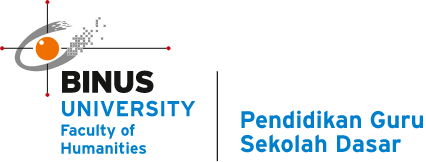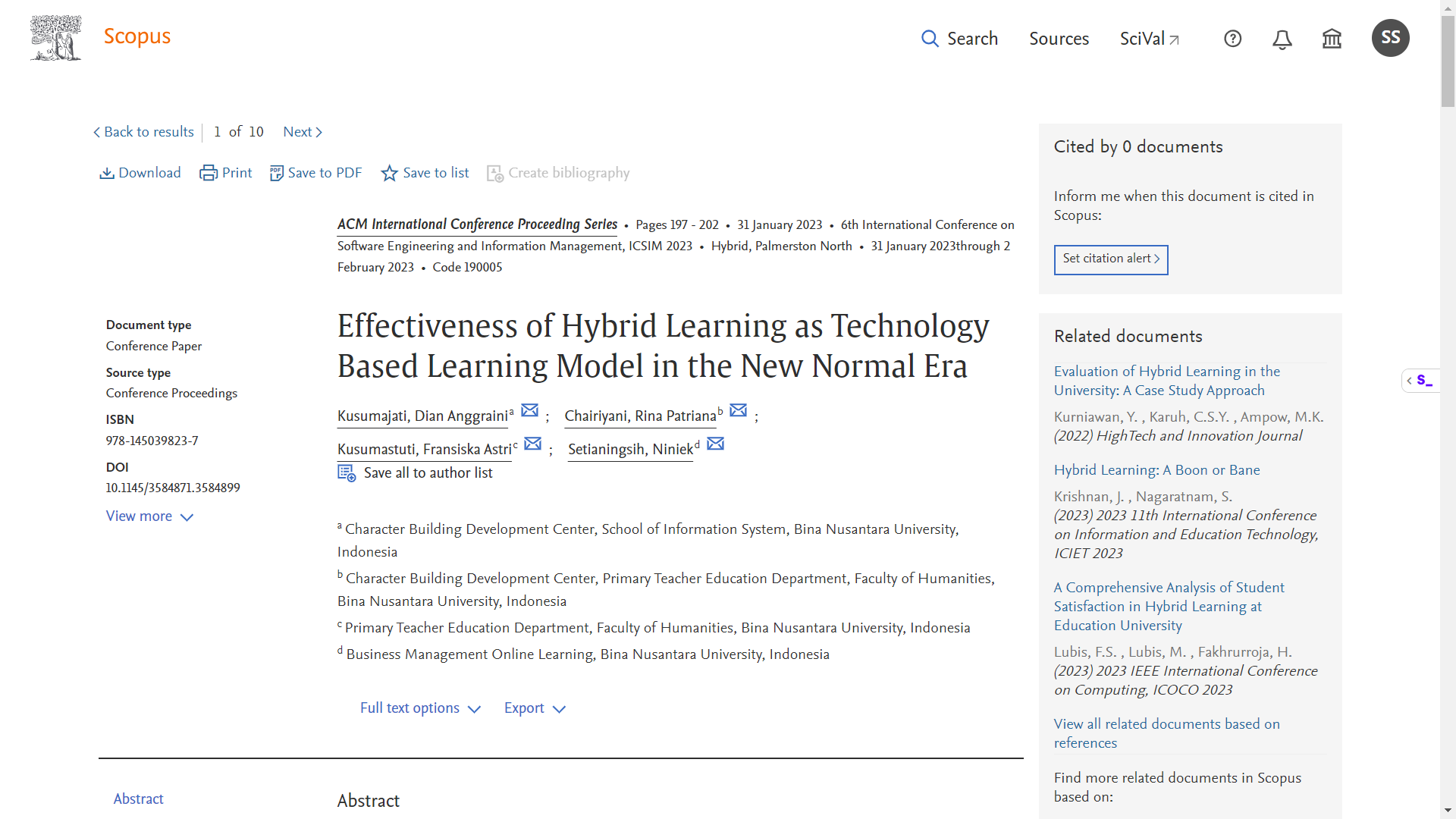Hybrid learning (HL) has become one of the learning models used when entering the new normal. Although various studies have measured HL, the effectiveness of HL model usage remains a concern for universities, especially Bina Nusantara University (BINUS) Jakarta. The main problem is that the use of hybrid learning conducted by BINUS is new. The purpose of this study was to determine the effectiveness of hybrid learning as technology-based learning by students in BINUS Jakarta. The population in this study was active students of BINUS Jakarta, totaling 127 students. The technique of collecting the sample was using random sampling. The statistical method uses Pearson correlation analysis and description. Based on the descriptive analysis the results found that hybrid learning was reflected in the role of technology (helps students in finding the information needed for learning by using gadgets and computers), campus commitment (providing internet facilities, Wi-Fi, computers, audio connectors, television, cameras, internet, and InFocus in each class), learning activities (presentations and discussions, independent assignments, group assignments in the form of projects (problem based), and final tests), and student readiness (previously using a blended learning process). There are 81.1% of students in BINUS Jakarta who feel that the hybrid learning system is effective in the learning process carried out during the Covid-19 condition, at the same time preparing for the new normal era. Hybrid learning, which is most effective for students in BINUS Jakarta, can be felt when there is the role of technology, campus commitment, learning activities, and students’ readiness to participate in learning.
- About Us
- About Primary Teacher Education Program
- Students and Alumni
- Academics
- Publications
- News and Events
- Articles
- Projects
- Apply Now




